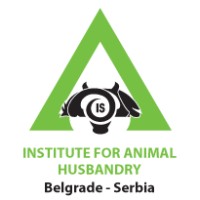
Institute for Animal Husbandry
About
The Institute for Animal Husbandry in Belgrade, Serbia, is a leading scientific research institution with a long-standing tradition since its establishment in 1948. Its activities encompass fundamental, applied, and developmental research in the fields of animal breeding, nutrition, health, and welfare, with particular focus on sustainable livestock production systems.
The Institute operates as an “open-air laboratory,” integrating experimental farms (sheep, pig, poultry, cattle), more than 200 hectares of arable land, an experimental meat processing facility, and a range of modern laboratories in genetics, microbiology, nutrition, and product quality. This allows for a full-chain research approach—from feed and management practices to animal product quality and environmental sustainability.
Research is carried out through interdisciplinary teams of animal scientists, veterinarians, agronomists, chemists and biotechnologists. The Institute also supports higher education and training in animal production sciences and collaborates closely with both national stakeholders and international research networks.
Vision
The Institute for Animal Husbandry aims to be nationally and regionally recognized as a center of excellence in animal science, contributing to the development of sustainable and resilient livestock production systems. Its strategic focus includes improving animal health and welfare, enhancing the efficiency of nutrient use, safeguarding agrobiodiversity, and reducing the environmental footprint of animal farming.
Through science-based innovation and knowledge transfer, the Institute supports the transformation of animal husbandry into a more sustainable, climate-resilient, and socially responsible sector aligned with European and global sustainability goals.
Institute of Animal Husbandry in the Animal Task Force
The Institute for Animal Husbandry represents Serbian livestock research within the Animal Task Force network. Its contributions stem from long-term experience in ruminant and monogastrics nutrition, pasture-based systems, conservation of autochthonous breeds, and development of feeding strategies with reduced environmental impact.
By bringing expertise in sustainable feeding, genetics and biodiversity preservation, animal product quality, and circular bioeconomy integration, the Institute contributes to the dialogue and initiatives of the Animal Task Force aimed at shaping future European livestock systems.
More information
Bogdan Cekić, PhD
Assistant director for technological development, international and economic cooperation
Phone: +381 643143084
Email: bcekic@istocar.bg.ac.rs / bogdancekic@gmail.com
Website: https://istocar.bg.ac.rs/en
Repository: http://r.istocar.bg.ac.rs/
